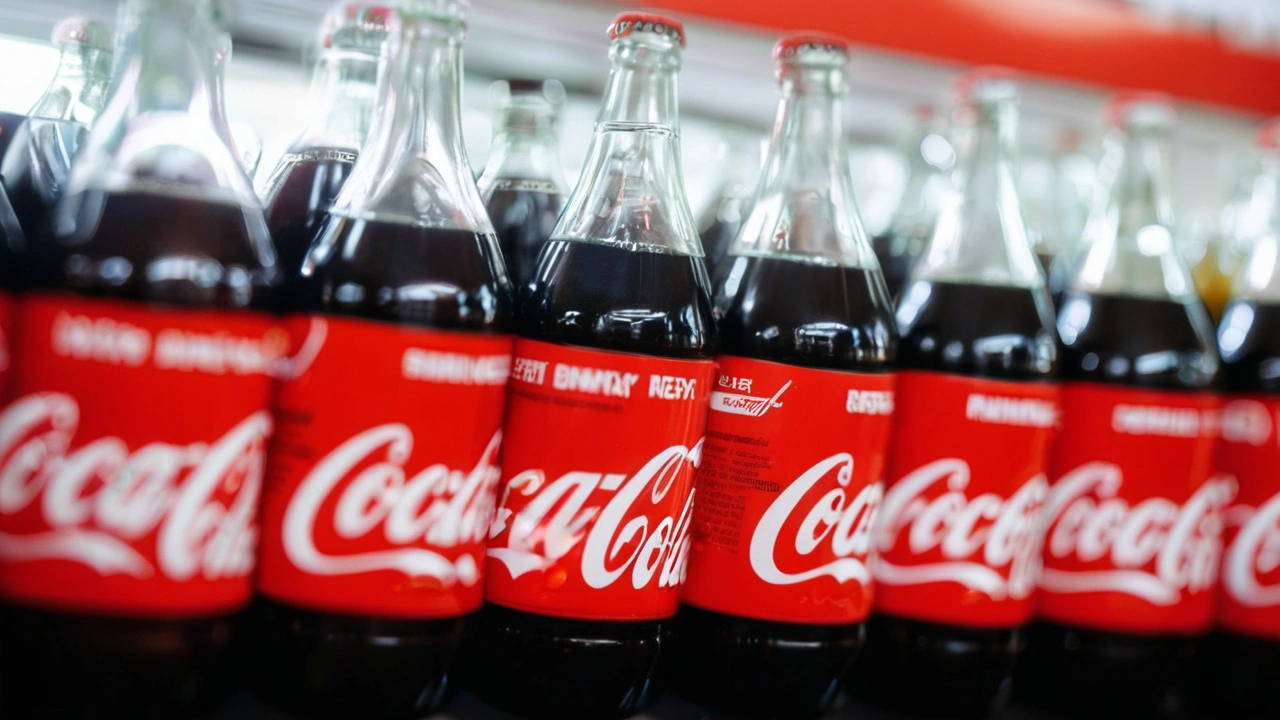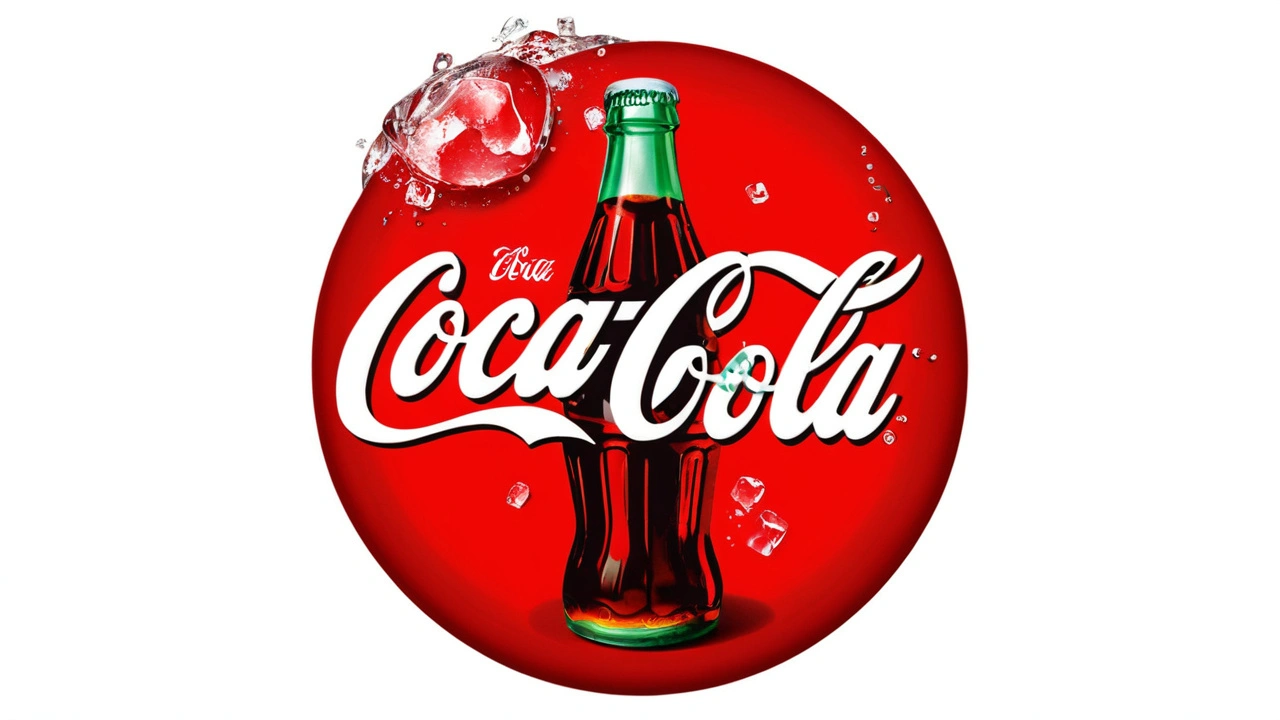FCCPC Takes a Firm Stand Against Deceptive Marketing Practices by Coca-Cola and NBC
The Federal Competition and Consumer Protection Commission (FCCPC) has taken decisive action against Coca-Cola Nigeria Limited and the Nigerian Bottling Company Limited (NBC), accusing them of misleading consumers through deceptive product labeling and marketing tactics. According to an extensive investigation conducted by the FCCPC from June 2019 to December 2020, the global beverage giants were found guilty of repeatedly violating the Federal Competition and Consumer Protection Act (FCCPA) by engaging in various forms of misleading marketing practices that affected the consumer community significantly.
Investigation Findings on Product Misrepresentation
The crux of the FCCPC's investigation revealed that Coca-Cola and NBC had misled consumers, particularly with their Coca-Cola 'Original Taste, Less Sugar' variant. The marketing promotion described this variant as identical to the classic Coca-Cola, concealing the changes in its formulation from consumers. This form of misrepresentation wasn’t isolated to Coca-Cola alone; it extended to other popular products like Fanta and Sprite as well. The packaging for these products, despite having different formulations, was almost indistinguishable, leading to considerable consumer confusion and misrepresentation.
Deliberate Actions and Consumer Deception
The FCCPC emphasized that the actions of Coca-Cola and NBC were deliberate. Both companies had multiple opportunities to adjust their labeling and marketing strategies to reflect an honest representation of their product changes. However, despite these opportunities, the companies chose not to correct their practices, continuing to mislead consumers and violating their rights. The Commission's findings indicated that this was a premeditated approach to maintain a market edge while compromising transparency and consumer trust.

FCCPA and Corporate Accountability
The Federal Competition and Consumer Protection Act (FCCPA) is a comprehensive legal framework aimed at safeguarding consumer rights and promoting fair competition in Nigeria. It demands that all companies uphold transparent practices and ensure that their marketing strategies do not deceive consumers. The violations identified against Coca-Cola and NBC point to a direct disregard for these regulations, emphasizing the need for strict adherence and corporate accountability. These revelations call into question the integrity of the marketing strategies employed by these companies, which are expected to adhere to the highest standards of honesty and transparency.
Potential Penalties and Regulatory Response
The FCCPC is reserving judgment on the specific penalties that Coca-Cola and NBC might face. However, it has hinted at significant consequences that could range from heavy fines to potentially stricter regulatory oversight. The Commission’s stance represents not just a reprimand for these particular incidents but also a broader message to the industry about the importance of consumer trust and accurate product representation. Companies found guilty of similar practices in the future can expect similar if not harsher penalties, as part of the FCCPC’s commitment to protecting consumer rights and ensuring fair market practices.
Consumer Protection and Future Implications
Consumer trust is a fragile yet crucial element in the market dynamics, especially for brands like Coca-Cola that rely heavily on customer loyalty. The findings of the FCCPC expose a significant breach of this trust, which could have long-term implications for customer perceptions and brand loyalty. This situation underscores the vital importance of regulatory bodies like the FCCPC in maintaining market fairness and protecting consumer interests. For consumers, this incident serves as an eye-opener to scrutinize product descriptions and marketing claims more critically, ensuring they are not misled by deceptive practices.

Industry-Wide Reflection and Change
The case against Coca-Cola and NBC is expected to prompt an industry-wide reflection on marketing ethics and consumer rights. Other companies in the FMCG sector might take heed of this situation and revisit their own marketing practices to ensure compliance with regulatory standards and maintain consumer trust. It also opens a dialogue on the importance of regulatory frameworks in balancing corporate ambitions with consumer protection, emphasizing that success in the market should not come at the expense of transparency and honesty.
Conclusion
The FCCPC's actions against Coca-Cola and NBC mark a significant step in reinforcing consumer rights and fair market practices in Nigeria. By holding these companies accountable for their misleading marketing tactics, the Commission sends a strong message about the importance of transparency, honesty, and consumer protection in the corporate world. This case serves as a reminder that regulatory frameworks exist to safeguard the interests of consumers and ensure that companies operate within the bounds of fair competition.

Sarah Lunn
August 2, 2024 AT 22:02Frankly, the FCCPC's report reads like a cheat sheet for how not to cheat consumers. The claim that Coca‑Cola "Original Taste, Less Sugar" is identical to the classic is outright false, and the press release conveniently glosses over the chemical differences. Misleading labeling violates the very spirit of the FCCPA, and the agency rightly calls this out as a deliberate deception. The wording on the bottles is practically indistinguishable, yet the formulation changes are significant enough to merit a clear disclaimer. This isn't a minor oversight; it is a calculated move to preserve market share while eroding trust.
Gary Henderson
August 3, 2024 AT 03:35Wow, talk about a soda saga! The whole "less sugar" hype sounds like a clever marketing spin that leaves folks scratching their heads. It's wild how the packaging stays the same while the taste tweaks under the hood. I guess the brand wants to keep the vibe fresh without shouting about the formula tweak. Still, you gotta wonder if consumers feel short‑changed when they buy a product that’s not quite what the label promised. Props to the FCCPC for shining a light on this.
Julius Brodkorb
August 3, 2024 AT 09:08It's crucial for companies to respect the boundary between marketing flair and honest representation. By keeping the label similar yet the product altered, they blur the line of consumer expectation. An inclusive market thrives on transparency, and regulators stepping in helps preserve that trust. Let's hope other FMCG players take note and re‑evaluate their own labeling practices.
Juliana Kamya
August 3, 2024 AT 14:42Indeed, the ripple effect of this case could spark a sector‑wide introspection. When a global titan like Coca‑Cola stumbles, the echo reaches every shelf with a label. If we champion clear, jargon‑light communication, brands will be incentivized to prioritize authenticity over smoke‑and‑mirrors. This is a prime moment for the industry to recalibrate its ethical compass.
Erica Hemhauser
August 3, 2024 AT 20:15Misleading marketing is unethical.
Hailey Wengle
August 4, 2024 AT 01:48What a scandal!!! This is exactly why we need stricter oversight!!! Corporations think they can pull a fast one on the public and get away with it!!! It's an affront to national integrity and consumer sovereignty!!! The FCCPC is doing a service to the people by calling out these deceptive tactics!!!
Maxine Gaa
August 4, 2024 AT 07:22From a philosophical standpoint, the deception touches upon the social contract between producers and consumers. When a brand misrepresents its product, it breaches implicit trust that underpins market transactions. Such actions raise questions about the moral responsibilities of corporations beyond mere legal compliance. The FCCPC's intervention can be seen as an attempt to restore equilibrium in this contract, reminding us that ethical considerations are inseparable from economic activity.
Katie Osborne
August 4, 2024 AT 12:55Indeed, the regulatory framework articulated by the FCCPA provides a robust mechanism for safeguarding consumer interests. The precision with which the FCCPC has documented the discrepancies underscores the necessity for transparent labeling practices. It is incumbent upon all stakeholders to heed this precedent and recalibrate their communication strategies accordingly.
Kelvin Miller
August 4, 2024 AT 18:28Great summary of the findings. The emphasis on clear labeling aligns with best practices in consumer communication. I appreciate the collaborative tone of the report and hope it prompts industry-wide improvements.
Sheri Engstrom
August 5, 2024 AT 00:02The intricacies of this case extend far beyond a mere marketing misstep; they reveal a systemic pattern of obfuscation that undermines the foundational principles of consumer sovereignty. By perpetuating a façade of continuity while clandestinely altering the formulation, Coca‑Cola and NBC have not only contravened the legal statutes enshrined in the FCCPA but have also eroded the psychological contract that binds brand loyalty to authentic product experience. This stratagem of camouflage is emblematic of a broader corporate ethos that privileges market dominance over ethical transparency, thereby fostering an environment where regulatory bodies must act as vigilant custodians of public trust. Moreover, the deceptive packaging, engineered to be visually indistinguishable, capitalizes on cognitive heuristics, exploiting the consumer's reliance on visual cues rather than substantive ingredient disclosure. The resultant consumer confusion is not incidental; it is a calculated exploitation of informational asymmetry, designed to sustain sales momentum whilst sidestepping the scrutiny that would accompany overt acknowledgment of formulation changes. The FCCPC's investigative methodology, spanning an extensive temporal window from mid‑2019 to the close of 2020, showcases a commendable dedication to forensic analysis, harnessing both qualitative and quantitative data streams to construct a compelling evidentiary narrative. Their findings underscore the necessity for a calibrated punitive response, calibrated not merely in monetary terms but also in the imposition of stringent oversight mechanisms that compel corporate compliance with transparency requisites. It is imperative that the subsequent penalties reflect the gravity of the transgression, serving both as restitution for affected consumers and as a deterrent against future infractions. In this vein, the Commission might consider integrating longitudinal monitoring protocols, thereby ensuring that any remedial measures adopted by the implicated entities are both enduring and verifiable. Ultimately, the case serves as a clarion call to the industry at large, reaffirming that the fiduciary duty to consumers supersedes any short‑term competitive calculus. The enforcement of rigorous labeling standards will not only safeguard public health but also reinforce the credibility of the marketplace as an arena of fair competition. As stakeholders-be they regulators, corporations, or consumers-we must collectively champion a paradigm shift that elevates transparency from an aspirational ideal to an operational imperative. Only through such concerted effort can the integrity of the consumer–producer relationship be restored and preserved for future generations.
Prudhvi Raj
August 5, 2024 AT 05:35In short, the FCCPC’s action highlights the need for clearer labeling. Companies should update packaging to match product changes.
jessica zulick
August 5, 2024 AT 11:08Seeing this unfolding is a reminder that vigilance is key. While the brands may argue market pressures, the consumer's right to honest information remains paramount. A balanced approach from regulators can foster trust without stifling innovation.
Partho A.
August 5, 2024 AT 16:42Let us view this development as an opportunity to reinforce ethical standards across the industry. By embracing transparent practices, companies can not only comply with regulations but also build lasting brand loyalty.